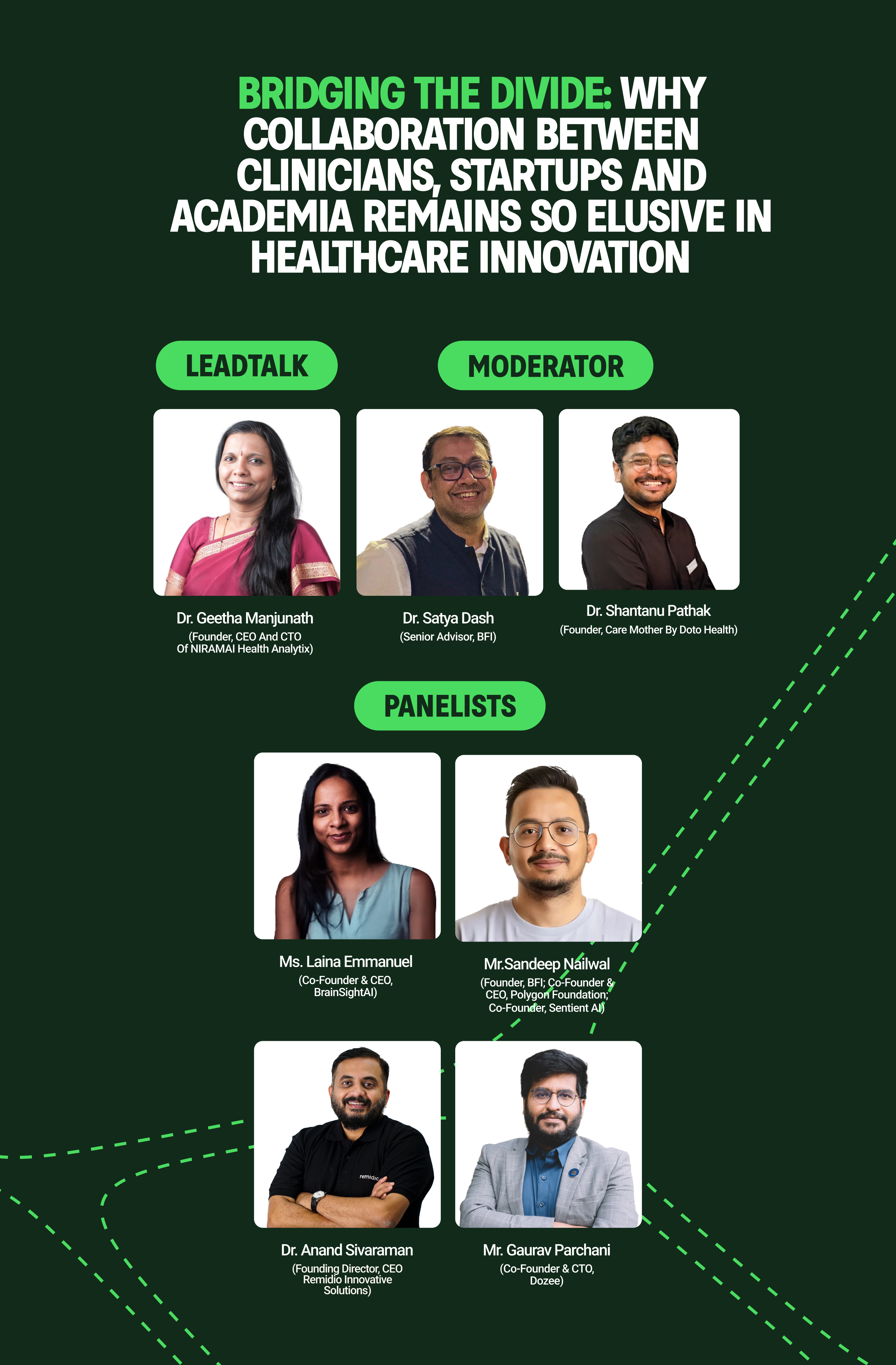


summary
The panel explored how artificial intelligence is reshaping healthcare in India, balancing excitement about new opportunities with a candid assessment of the challenges ahead. Dr. Geetha Manjunath (Niramai) highlighted that AI in healthcare is fundamentally different from other sectors, as it requires clinical validation, interpretability, and explainability to build trust with doctors and patients. She emphasized that without this trust, adoption remains limited.
Entrepreneurs shared how they are navigating these realities: BrainSightAI uses AI to map brain functions for psychiatric and neurological conditions; Monitra Health analyzes millions of heartbeats to detect anomalies early; and Remidio leverages AI for accessible eye disease detection at the last mile. These stories illustrated how India’s entrepreneurial ecosystem is already pushing frontiers in AI-driven care.
However, the panel also pointed out systemic gaps. AI founders continue to struggle with monetization and business models in healthcare, where incentives across patients, providers, and payers often remain misaligned. Legal liability for AI-driven diagnoses and treatments remains unclear, creating barriers to trust and adoption. The discussion also surfaced broader strategic risks: India’s dependence on global technology giants for compute and foundational models could restrict innovation and limit affordability if monopolization persists.
India has unmatched access to diverse, real-world clinical data and a growing talent pool. With responsible governance, strong partnerships, and targeted support—particularly from enablers like BFI—India can take a leadership role in developing equitable and impactful healthcare AI solutions.
Key takeaways
• Indigenous compute infrastructure
To be built to reduce reliance on global tech monopolies and affordable AI innovation.
• Health-specific foundational models
Models (e.g., for thermal imaging, vision, and neuroimaging) should be developed in India to meet local needs.
• India’s clinical data
Is a unique strength — but requires responsible stewardship, privacy safeguards, and interoperable standards.
• Trust-building
Is non-negotiable: AI adoption hinges on rigorous clinical validation, interpretability, and explainability.
• Business and monetization
Models need innovation to align incentives between patients, clinicians, hospitals, and payers.
• Open-source
Governance and middleware frameworks should be prioritized to ensure equitable access and prevent monopolization.
• Role for BFI
Act as a catalyst by funding validation studies, supporting data interconnectivity, enabling compute clusters, and shaping responsible AI adoption.
.png)
